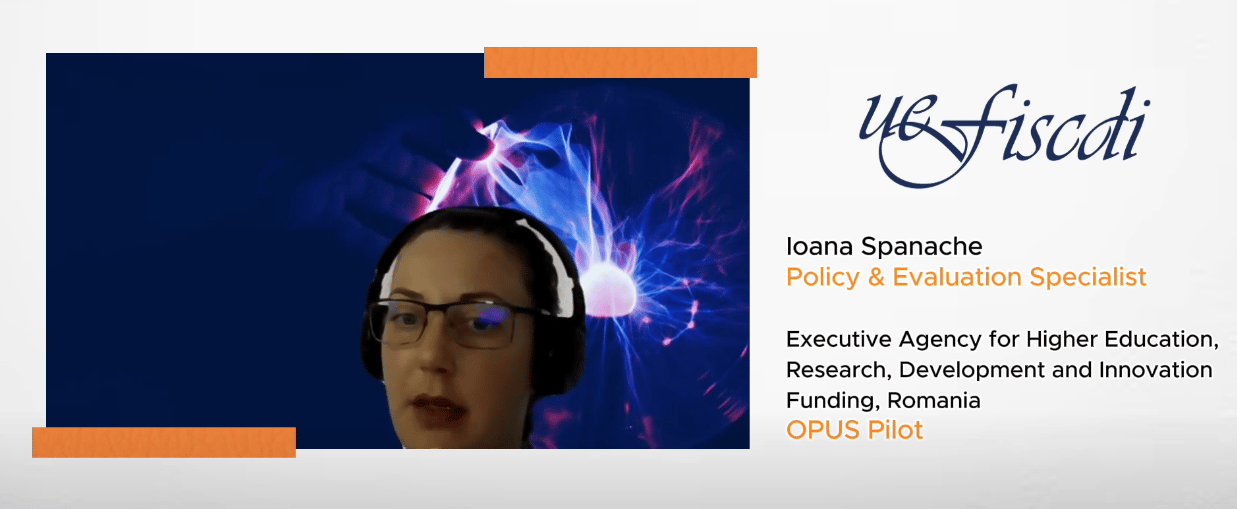- OPUS' Newsletter
- Posts
- OPUS Newsletter (9)
OPUS Newsletter (9)
9th Edition
Welcome to 9th edition of OPUS Newsletter
Find out latest news about OPUS activities and blogs
November 12-14: Second Annual General Meeting of the OPUS project - Open Science Practices Across Europe
The 2nd Annual General Meeting of the OPUS project is set to take place as part of a larger three-day event in Bucharest, Romania. This important gathering will bring together project partners, stakeholders, and experts to review progress, discuss research assessment reforms, and engage in mutual learning sessions aimed at promoting open science practices across Europe.
Hosted by the Executive Agency for Higher Education, Research, Development, and Innovation Funding (UEFISCDI), the event will feature a mix of in-person and online participation: Day 1: OPUS Project 2nd Annual General Meeting, Day 2 will feature a full-day event dedicated to OPUS Workshops and Mutual Learning Session, Day 3: (Inter)national Conference on Research Assessment.
Four OPUS Project Pilots: Open Science in Europe
The Open and Universal Science (OPUS) project is working to reshape how research and researchers are assessed by developing and testing new indicators and methods. This initiative focuses on promoting open science practices across Europe and involves three Research Performing Organisations (RPOs)—Nova University Lisbon, the University of Rijeka (UNIRI), and the University of Cyprus—along with two Research Funding Organisations (RFOs) from Lithuania and Romania (RCL and UEFISCDI). Through these pilot programmes, the institutions are collaborating with external experts, engaging in shared learning, and refining their approaches.
The State of Open Science at the University of Rijeka
Open science has become a key priority at the University of Rijeka (UNIRI), establishing a strong foundation for transparency and accessibility of scientific research. The university aligned itself with European trends by adopting the European Open Science Declaration in 2019, committing to the principle that research funded by public sources should be publicly accessible. This has positioned UNIRI as a leader in open science in Croatia, focusing on increasing the visibility and impact of its researchers.
Open Science at Nova University
Nova University is fully dedicated to implementing open science principles and aligning its institutional policies with the national policy established by the Portuguese Foundation for Science and Technology (FCT). This national policy is currently under revision and is expected to be released soon. In anticipation, Nova is working on synchronising its own open science policy document with these updated national guidelines.
UEFISCDI’s Role in Advancing Open Science in Romania
Since 2018, UEFISCDI has led the creation of Romania’s Open Science Knowledge Hub, a central resource aimed at promoting and guiding open science across the country. The agency has played a crucial part in coordinating the National Open Science Strategic Framework and providing policy recommendations, which have been integrated into Romania’s National Strategy on Research, Innovation, and Smart Specialisation (2022–2027).
University of Cyprus: Promoting Engagement, Transparency, and Reproducibility
Open Science is a key focus at the University of Cyprus, with a strong commitment to fostering transparency, accessibility, and collaboration in research. While the university’s open science policy is voluntary, meaning researchers are not required to publish in open science outlets, it is highly encouraged. Already, over 60% of the university’s publications are available through open access, showing significant progress in this area.
Rene Von Schomberg: Towards a New Ethos of Science or a Reform of the Institution of Science?
In his latest publication, Towards a New Ethos of Science or a Reform of the Institution of Science? featured in the sixth special edition of NOvation, Rene Von Schomberg discusses the evolving dynamics of the scientific community and the broader institutional structures underpinning it. The article explores a timely and vital question: should science be governed by a revised ethical framework that emphasizes openness and collaboration, or does it require a deeper, institutional-level reform to promote these values effectively?
Stay up-to-date with daily blogs posted on our website
Thank you for checking out our latest newsletter!
Make sure to stay in touch with us via OPUS website, X (Twitter) & LinkedIn.
Open and Universal Science Project |
The OPUS project is an EU-funded project implemented by an eighteen-organisations consortium led by The Oceanic Platform of the Canary Islands (PLOCAN). The project commenced on 1 September 2022 with an implementation period of 36 months.
OPUS helps reform the assessment of research towards a system that incentivises and rewards researchers to take up Open Science (OS) practices of providing open access to research outputs, early and open sharing of research, participation in open peer-review, measures to ensure reproducibility of results, and involving all stakeholders in co-creation.
OS Ecosystem State-of-the-Art
OPUS conducted a comprehensive state-of-the-art on existing literature and initiatives for Open Science to reform research(er) assessment and incentivise and reward Open Science practices. It includes a stakeholder engagement plan
OS Interventions
OPUS developed indicators and interventions for Research Performing Organisations (RPOs) and Research Funding Organisations (RFOs) to implement a reformed research(er) assessment system that incentivises and rewards Open Science.
Pilots to Implement and Monitor Open Science
OPUS sets up, implements, and monitors the pilots’ open science practices in 3 RPOs and 2 RFOs, and conducts mutual learning exercises based on implementing the action plans.
Policy Brief
OPUS will develop and disseminate policy briefs on Open Science and a revised OS-CAM to assess research careers. The policy briefs will summarise the key findings of the project and link to the wider global context of Open Science.

HORIZON-WIDERA-2021-ERA-01 The OPUS project is financed by European Union through the GRANT AGREEMENT concluded with the European Research Executive Agency (REA), under the powers delegated by the European Commission. Project number: 101058471 |
Views and opinions expressed are however those of the author(s) only and do not necessarily reflect those of the European Union or the European Research Executive Agency (REA). Neither the European Union nor the granting authority can be held responsible for them.
/



